Foodie Faux Pas: What Not to Say in French Restaurants
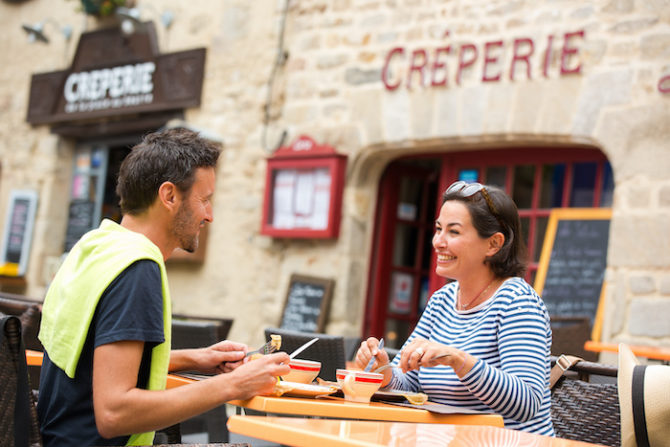
One of the highlights of France is its fabulous food but beware: Even with faultless French grammar, you can unknowingly upset a lot of people! To avoid upsetting the waiter or shocking the chef, Annaliza Davis shares her own insights, mostly learned from cringeworthy experiences.
Hello, complete strangers!
This routine is particularly prevalent in smaller towns and rural areas, where it applies to bars, restaurants and cafés alike. You’ll notice that a newcomer will give a general greeting of “Bonjour, Messieurs-dames” as he or she enters the establishment, and those already seated will respond… or not, depending on their character and nationality. As a guide, the more provincial the setting, the more this greeting is expected, so listen out for it when visiting, and try it for yourself.
Oh, and wherever this applies, you’re also expected to say goodbye to everyone again when you leave: “Au revoir, Messieurs-dames”. Pull this off, and you’ll get a discreet nod of respect from the owners.
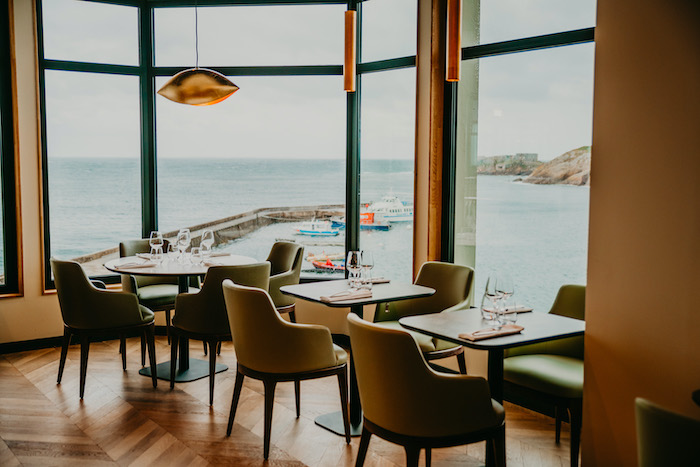
Ste Barbe Hôtel & Spa Le Conquet MGallery : Restaurant. Photo credit © LEOPOLD Pascal
Please wait to be seated
In the U.K., it’s fairly common to go into a café or restaurant, identify the table that appeals to you, then settle yourself down and look around for a waiter; in France, this is beyond rude. The best approach is to politely wait a moment until a member of staff appears and asks “Vous êtes combien?” (for how many people?), then ushers you to a suitable table. Congratulations, you have already not offended anyone.
That is not a finger bowl
If you find yourself at a table laid with plates, cutlery and small ceramic bowls, please be aware that these are not finger bowls. For anyone familiar with French traditions this seems obvious, but for the uninitiated it can be la grande surprise to see people drinking from these little bowls. In crêperies, cider is traditionally served in these bolées and for breakfast, bigger versions are used for hot chocolate or coffee.
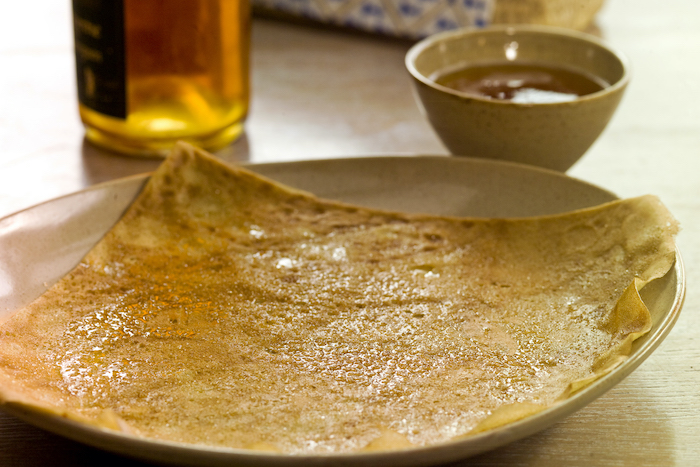
Photo credit © GRATIEN Jean-Patrick
Crêpes can in fact be a three-course meal
This is particularly important in Brittany, home of the deliciously thin pancake known as the crêpe. When giving recommendations for a restaurant, locals may well include a crêperie or two in their list. Non-Bretons can be confused by this, as we class pancakes in the same category as waffles: snack food. To a Breton, however, the crêpe is endlessly versatile and can be served as starter, main course and dessert. The only accompaniment you need is a fresh green salad. Speaking of which…
Can I have chips with that?
Asking for chips (especially with crêpes, what are you thinking?!) is tantamount to slapping the chef. If the dish is served with new potatoes or rice, there’s probably a good culinary reason. Be adventurous: a side of green beans won’t hurt you.
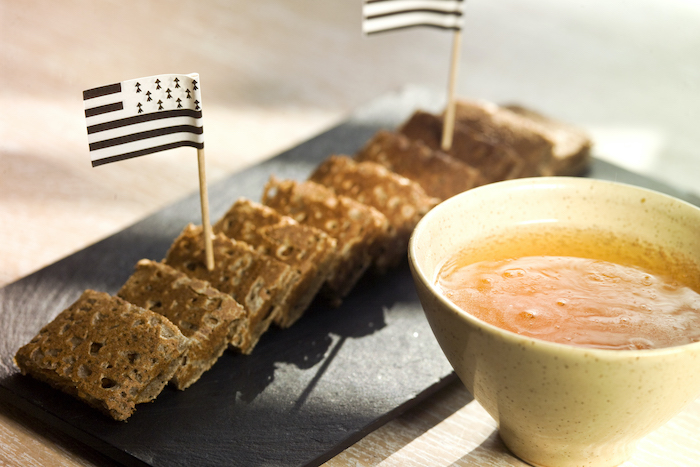
Photo credit © GRATIEN Jean-Patrick
Lasagna + chips + garlic bread. Again, no.
British and American diners are somewhat obsessed with carbohydrates. We don’t see a problem with combining pasta (carbs) with a side of garlic bread (carbs) and some chips (carbs). This is an outrage to the French sense of a balanced meal. Where are your vegetables? And no, baked beans don’t count (carbs).
That meal was brilliant/awful
You know that moment when the waiter discreetly asks, how is your meal? Maybe you hold up your index finger and thumb in the OK hand sign meaning that it is perfect, but the waiter’s shocked reaction immediately shows that here, they take it differently. In France, this gesture means “nulle”, absolutely rubbish or worthless.
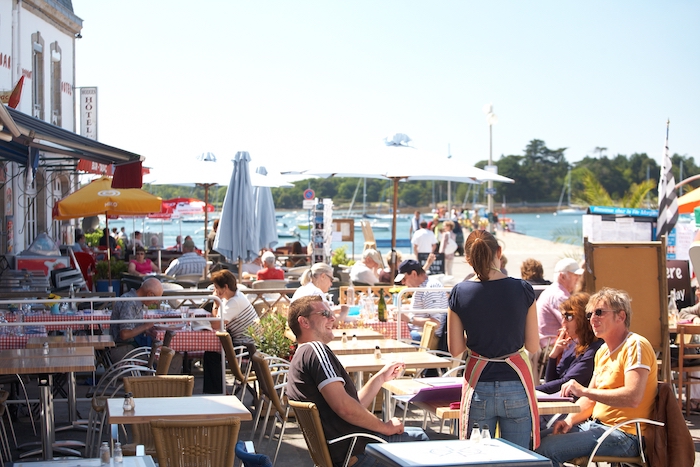
Photo credit © GUILLIAMS Laurent
Thank you, I’m pregnant
The meal is over and you want to decline dessert, so when the waitress asks, you say “No thank you, I’m full”. Except, if you declare, “Non merci, je suis pleine” you have actually just announced that you’re pregnant. Congratulations! Or, if you prefer, try the more acceptable versions: “Merci, j’ai assez mangé” or “Non, c’est bon, merci”.
They’re taking forever…
It’s well known that the French are happy to linger over their meals, but you might have found yourself waiting half an hour for the bill even after you’ve told them that you’ve finished. France respects your right to sit, digest and chat, so you need to ask for the bill when you’re ready. If you just wait for them to bring it, you’ll be waiting a long time, with both parties thinking the other has time to waste!
Bon appétit? None of your business!
One final note about eating in France. Fifteen years ago, it was highly unusual to see people eating in the streets (other than tourists), but now it’s more widespread as even the French are dealing with shorter lunch breaks and eating on the move. If you do settle on a park bench or other public spot to enjoy a sandwich or a picnic, don’t take offence if passers by comment “Bon appétit”. It’s not sarcastic, they’re not being nosy or passing comment on your choice: They are being sincere. So enjoy your meal!
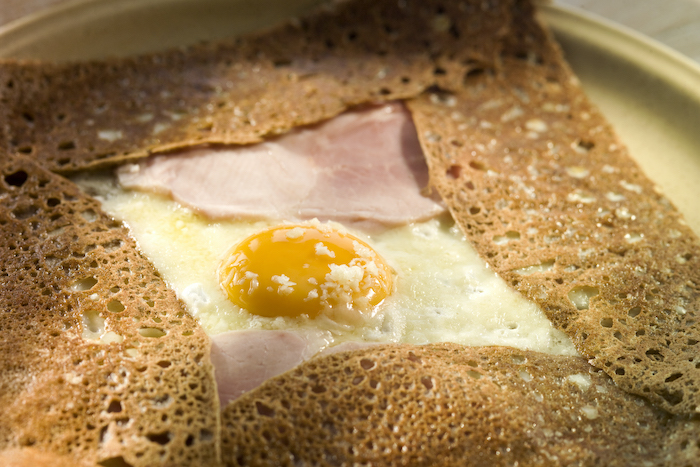
Photo credit © GRATIEN Jean-Patrick
Share to: Facebook Twitter LinkedIn Email
Leave a reply
Your email address will not be published. Required fields are marked *




REPLY
REPLY
REPLY